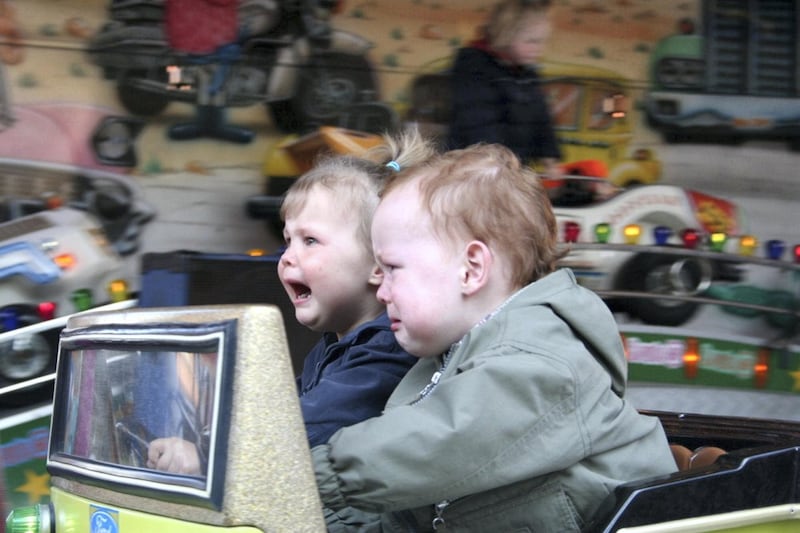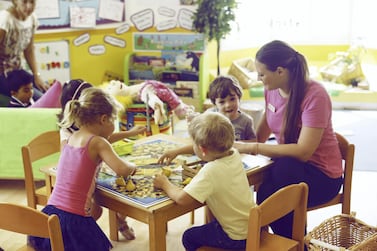Two women are at Souk Al Manzil in Dubai with their children, and one of them is having a major meltdown. "Stop crying!" the mum shrieks at her child. "You need to stop crying!" It is only when the mother calms down, picks the child up and gently says, "OK, breathe", that the tantrum passes. For Dr Shefali Tsabary, this anecdote provides a classic example of what she will speak about on November 25 during her keynote address at the Sharjah Entrepreneurship Festival, entitled The Future Starts Today: Creating a Generation of Conscious Achievers.
That frustrated mother at Souk Al Manzil? "She needed to just breathe," says Tsabary, who wrote 2010's The Conscious Parent and several other books. The Mumbai-born psychologist who lives in the US has also given a Ted Talk and been interviewed by Oprah Winfrey on talk show Super Soul Sunday. One of her core principles is that tantrums are not to be quashed. "The child is crying because they are unable to communicate – and that's all it is," she explains. "We don't like it because it makes us feel helpless, incompetent; we don't know what to do with that."
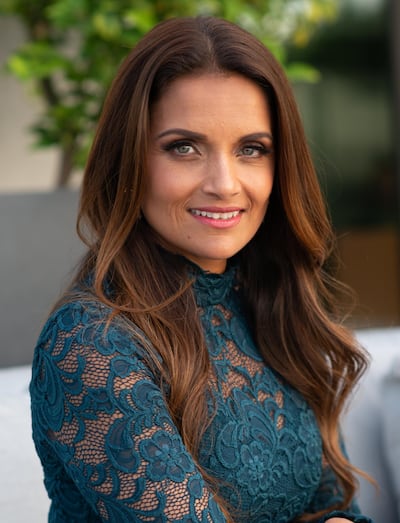
Instead, if parents understand that tantrums are a natural way for toddlers to express their emotions, then they can soothe them and help them move right along, she says. “The traditional parenting paradigm is about fixing the child, ‘creating the perfect child’, but conscious parenting is really about raising the parental consciousness.”
When a parent begins to understand the root of their instinctive need to help their child avoid pain, starts healing their own old emotional wounds and identifies their own "triggers", then they can make a real connection with their child, Tsabary says.
"I think most of us were raised to deny and repress our pain, avoid pain, and see pain as the antithesis of the pursuit of happiness. I teach that we have to do away with this desire to pursue happiness, because by doing that, we actually experience a resistance to our current state of life. We're saying: 'No, what is happening to us is not good enough, I need to be happy,' instead of finding the happiness in the 'is-ness' of our life in the moment."
Conscious parenting can become more challenging when you add another source of childcare, such as a nanny, into the mix, Tsabary says. "It's good to have support in the home, so the mother and father can have self-care, but they cannot lose the connection that only a parent can have with a child. The child needs to feel like it's being raised by the parent; they desire and want the parent to connect with them more than anyone else. [And that] there is no one who can replace them."
In January, Tsabary took a major step in launching her online Conscious Coaching Institute, which has so far produced 160 coaches, from the US to Egypt, trained in her methods. Dubai coach Leena Kapil, who worked in finance and now runs a family business, has become the first person from the UAE to be certified. She realised something had to change in her own parenting efforts several years ago after having her daughter Ivana, now 6, and son Armin, now 4. "I was so sure of the kind of parent I wanted to be," she says. "I was always thinking: 'I don't want to be like my own parents.' I realised that I was beginning to be just like my mum with my children, and it was backfiring."
Then, in a corrective effort, she found herself being too permissive. It was all very confusing, and advice from other parents was no real help because their experiences and backgrounds were so different. So Kapil and her husband took a local, five-week course on how to raise emotionally intelligent children. She moved on to study through the Jai Institute for Parenting and delved into her own subconscious behaviour through theta healing and vipassana meditation. It was the way spirituality was incorporated into the subject of conscious parenting that drew Kapil to sign up for Tsabary's five-month programme.
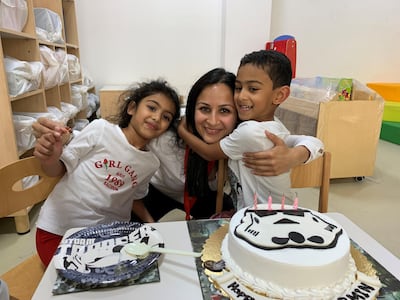
Kapil has already been coaching family members privately, and in January plans to offer her own sessions and workshops on conscious parenting methods in Dubai. Along the way, her children have flourished: her shy daughter has come out of her shell and her son is doing well in school. Tsabary's concept has helped the entire family, she believes. "Whatever she's teaching is not just for children," she says. "It's your relationships at work and with your spouse, it makes you so conscious about your own limitations that you become conscious in every action you are taking."
Hollie Corkum Sears is a holistic nutritionist and yoga teacher from Canada living in Abu Dhabi with her husband Jeff and two children, Amelia, 6, and Jenson, 4. She is currently listening to Tsabary's The Conscious Parent as an audiobook. Her biggest lesson? Learning to pull back when her overwhelming instinct is to swoop in and fix everything. "My daughter Amelia is really strong-willed and so am I, and we butt heads a lot," says Corkum Sears. "Sometimes I feel like I need to let her go into her own tantrums and I have to let her deal with them herself. They aren't going to learn anything about pain and suffering if you're always trying to stop it for them. You have to sometimes let things ride themselves out and take it as a lesson for both of you."
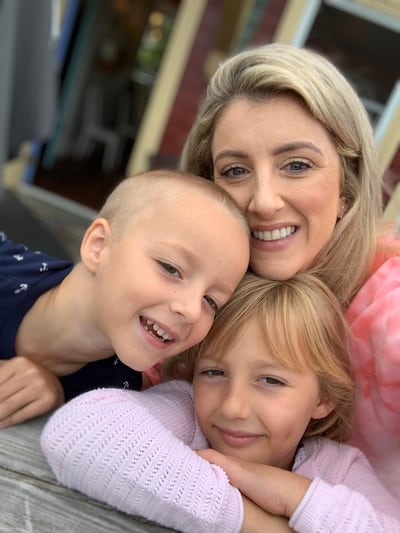
Reem Shaheen, a counselling psychologist and founder of BE Psychology Centre in Dubai, says many of her clients struggle today because, as children, they were taught to avoid emotional pain at all costs. "Being repressed comes out in forms such as anxiety and panic attacks," she explains.
It's only natural for parents to try and prevent their own children from feeling emotional or physical pain, to distract them instead of giving them a chance to process what has happened. But it ultimately hurts them, says Shaheen. "Once you disconnect from your emotions, you're pretty much disconnected from everything else, except your mind," she adds. "What's taking control is thoughts, and thoughts can be irrational. And feelings can be irrational."
Another thing parents do is to tell their children that what they are feeling is wrong, she says. Shaheen uses the example of walking her dog in Dubai: sometimes when she encounters children they are afraid, which is natural. Yet their parents will often tell them not to be.
The child's reaction? "The adult who takes care of me, who walks on water, tells me I shouldn't be feeling what I'm feeling, so what I'm feeling is wrong," she says. "This is where the disassociation starts."
To learn more about conscious parenting in Dubai, visit Conscious Coaching by Leena Kapil on Instagram and Facebook. Dr Shefali Tsabary also teaches online courses through Mindvalley.com.
